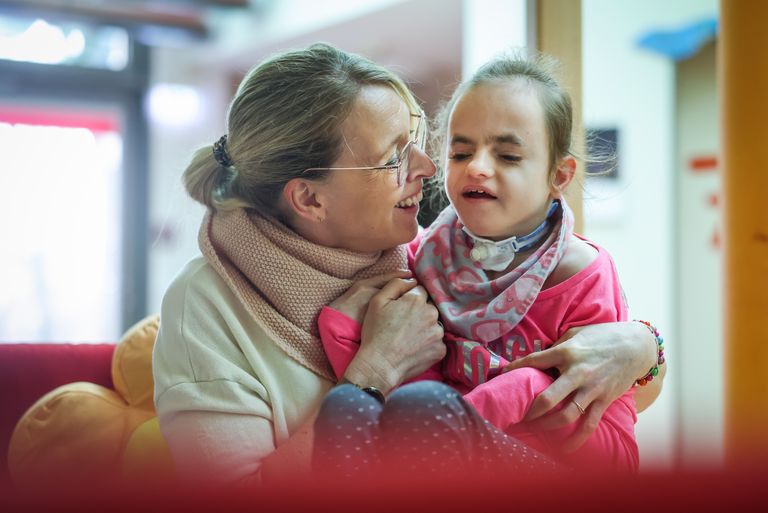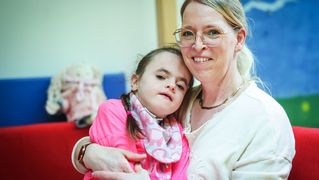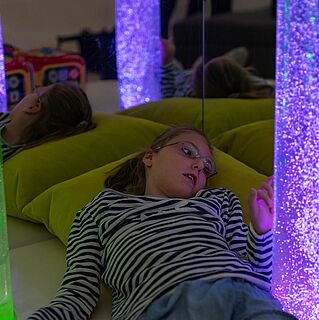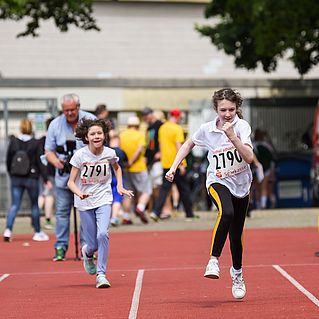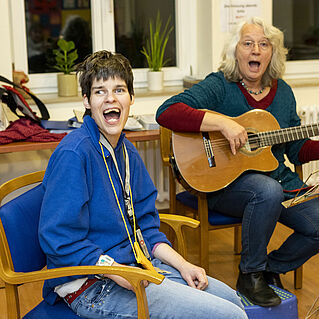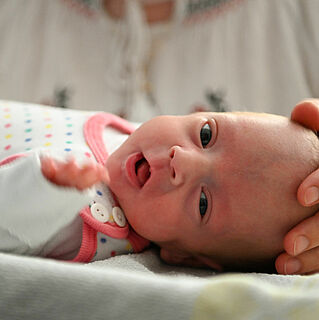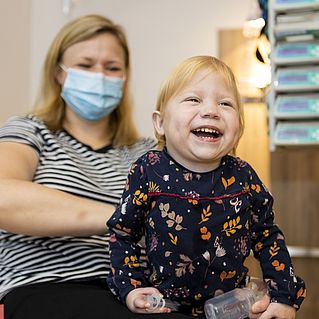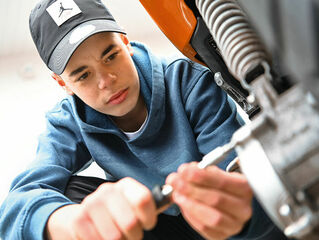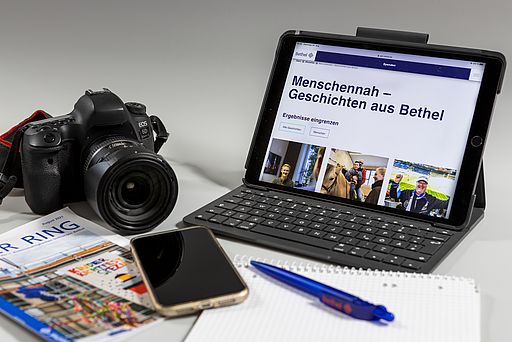Sonja Klotz gently lifts her daughter out of the wheelchair and into the seat of the swing. Paulina rocks back and forth, she can't talk. "She's looking forward to the swings. I can see that in her face," says Sonja Klotz and gives her 13-year-old daughter a little push.
The sun shines through the dense foliage of tall trees that tower over the garden of the Bethel Children's and Youth Hospice. Frogs give a concert at a pond below the ridge on which the centre stands.
Paulina and her mother enjoy the natural atmosphere in this oasis. "We come here two or three times a year to find some relaxation and relief," says Sonja Klotz. At the children's hospice, her severely disabled daughter receives loving round-the-clock care and nursing. "I can use the hours here with Paulina more intensively than at home, where I have to work from home," she says. It also helps her to share experiences with other affected parents.
Paulina's birth was actually unremarkable, reports Sonja Klotz. "But somehow I always felt that something was wrong," says the mother of four children. Shortly after the birth, the parents received the diagnosis: trisomy 18. Paulina is severely mentally and physically impaired. Among other things, she suffers from a severe heart and lung malformation. A few years ago, she also developed epilepsy. This is why she regularly visits the Bethel Children's Centre, where she is treated with medication. "We also feel very well looked after there," emphasises Sonja Klotz.
